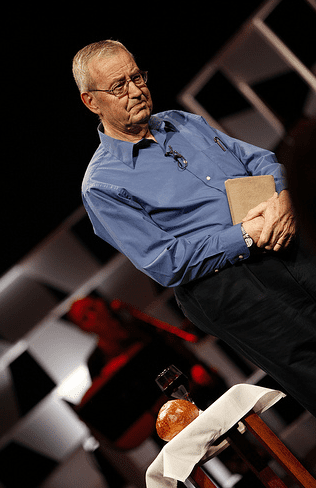 Meaning in Pain Proves There’s a God (Jeff Cook)
Meaning in Pain Proves There’s a God (Jeff Cook)
Today we hit what I see as the second best reason to believe in a God, and as I outline in more detail in Everything New, this is the reason I not only believe in a God, but a very specific God.
Anyone who thinks seriously about God has to think about the evil in our world—both the moral evils that some human beings inflict on others, and the natural evils that seem to unthinkingly strike even the best people.
Many have argued that the suffering in our world gives us a good “reason” to reject God-belief, for certainly a good God would act decisively to end sex slavery. A good God would destroy Malaria. A good God would not remain silent in the face of war, disease, the death of children, and the other tragedies that many experience each day.
But there are other arguments that arise out of pain and suffering in our world.
When we assume that there’s no God, the value and meaning of suffering in our world is fairly clear. As many have pointed out, in a universe of blind physical forces some people will get hurt, other people will get lucky, and we won’t find any rhyme or reason in any of it.
If God does not exist, the vast majority of horrific suffering fails to lead to any identifiable good. Most tragedies kill the victim before the victim can discover any meaning in their pain. As such, when a young girl dies of bone cancer, when a region is drowned by a tsunami, when a man detonates a bomb laced with nails and ball bearings in a crowded area—these catastrophes have no resolution or value for the deceased.
If there is no God such victims couldn’t experience their pains being made right again, couldn’t work through the tragedy to find value. Such evils were just brute facts to swallow at gravesites.
Conversely, if God is real, suffering and death might be doors leading to new lands. They could be transformed in God’s future into meaningful experiences, for no matter what might happen to the body of someone suffering, her soul might grow, her mind might progress, her future self that God was presently fashioning might alter into something far more substantial.
We might outline such an argument this way:
(P1) Horrendous pains resulting in the death of a human being occur daily in our world.
(P2) If materialism is true, Horrendous pains resulting in death hold no meaning for the sufferer.
(P3) Without meaning for the deceased sufferer, horrendous pains resulting in death are irredeemably tragic.
(P4) If materialism is true, our world experiences daily events that are irredeemably tragic.
(P5) Our world does not contain events that are irredeemably tragic. [Denying the repugnant conclusion]
(C1) Materialism is false.
(P6) In order for there to be meaning in the horrendous pains resulting in death in our world, there must be a mind of immense power that can create states of affairs in which pain of the quality and quantity we experience are transformed into good.
(C2) Given P5 and P6, a mind of immense power that can create states of affairs in which the horrendous pains resulting in death in our world are transformed into good exists (and this being we call God).
What does pain tell us about our world? This may be the primary question for a world like ours.
When I look at desperately sad event through the perspective of God-belief and of materialism only one holds out the potential for real hope. The other is irredeemably tragic.
Suffering gives me a substantial reason to embrace God-belief, for a God alone could take a world that is clearly groaning and transform those spots into something alive. But if there is no God, most of the pain experienced by those I love, by most of humanity in fact, is plainly pointless.
As philosopher Peter Kreeft notes, If God is absent then our lives, with all the spots of light in them, are surrounded by darkness, but if God is real then our lives, with all the spots of darkness in them are surrounded by light.
Jeff Cook lectures on philosophy at the University of Northern Colorado. He is the author of Everything New: One Philosopher’s Search for a God Worth Believing in (Subversive 2012). You can find him at everythingnew.org and @










